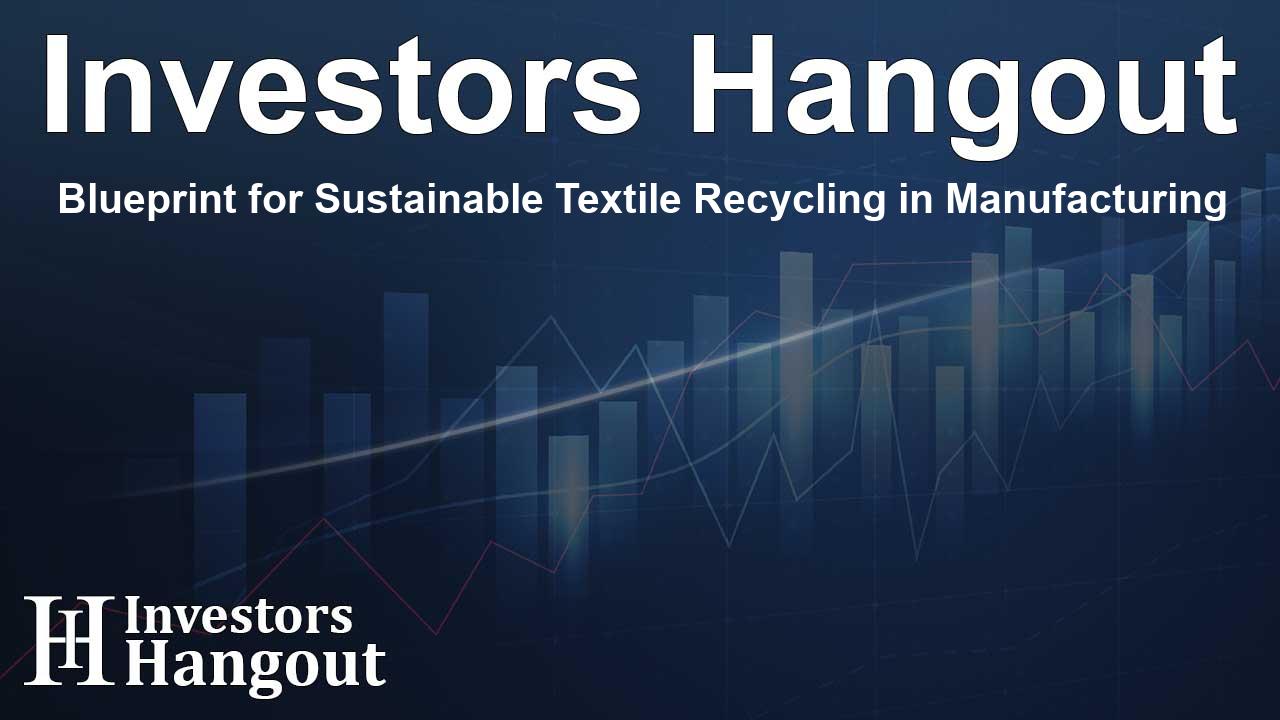Blueprint for Sustainable Textile Recycling in Manufacturing

Innovative Strategies for Textile Recycling in Manufacturing
Global Fashion Agenda (GFA), along with its supporters, has rolled out a pioneering resource known as the Upstream Circularity Playbook. This Playbook, which is now accessible in six different languages, serves as a comprehensive guideline designed to cater specifically to garment manufacturing regions. It aims to assist various stakeholders in scaling circular business models, effectively utilizing post-industrial textile waste, and driving sustainable transformation in their practices.
The Growing Importance of Circularity
This initiative has arrived at a crucial juncture, as regulations encouraging circularity are expanding globally. With more than 520 regulations in place that promote circularity and regional sourcing, the Playbook acts as an essential resource for establishing and reinforcing robust upstream circular ecosystems. It provides manufacturers, brands, policymakers, and investors with practical methodologies for implementing circular solutions in primary manufacturing hubs.
Unlocking Economic Opportunities
There's an enormous market potential tied to textile recycling, particularly in manufacturing countries, where vast amounts of post-industrial textile waste are still underutilized. The high quality and consistent nature of this waste present an excellent opportunity for the expansion of textile-to-textile recycling technologies. Seizing this initiative could allow regions like Bangladesh to create an annual revenue stream estimated between USD 4 to 5 billion, if steps toward recycling capacities are effectively established.
Empowering Manufacturing Regions
The Upstream Circularity Playbook draws on a wealth of knowledge acquired from over 20 different case studies across diverse regions, including Bangladesh, Cambodia, Indonesia, and Vietnam. This collection of examples highlights successful partnerships among various players in the fashion industry, including brands, manufacturers, and recyclers. It underscores the critical need for cooperation across the entire value chain, which is fundamental to maximizing the potential of circularity.
Framework for Action
To facilitate these changes, the Playbook offers a structured approach to developing the necessary infrastructure for circularity in garment manufacturing countries. Some key strategies include:
- Proper waste segregation: Implementing segregation practices at factories ensures the quality of recyclable materials is upheld.
- Digital tracking: Utilizing digital traceability platforms helps monitor waste movements and align with recycler standards.
- Aggregating waste: Organizing and sorting textile waste ensures it's optimally delivered for recycling.
- Utilizing appropriate technologies: Selecting the best recycling technology for specific waste types enhances material recovery results.
- Design for the future: Creating products using recycled materials supports the mission of establishing a closed-loop system.
Critical Insights from Industry Leaders
According to Federica Marchionni, the CEO of Global Fashion Agenda, this Playbook is a crucial tool that embeds circular practices into the global fashion supply chain. It strives to highlight innovation, aiming to utilize post-industrial waste effectively while building the infrastructure necessary to attract recyclers and prepare for post-consumer waste recycling.
Other industry experts like Catherine Chiu from Crystal Group and Edwin Keh from HKRITA echo this sentiment, believing the Playbook offers actionable insights to empower stakeholders across the fashion value chain. They stress the importance of collaboration in achieving a transformative impact through recycling practices.
With input from over 20 experts, the Upstream Circularity Playbook serves as a blueprint to cultivate economic, environmental, and social advantages in garment manufacturing sectors while emphasizing the importance of cooperative efforts.
Get Involved
The Upstream Circularity Playbook is openly available for anyone interested in promoting sustainable practices in textile recycling. Stakeholders are encouraged to provide feedback and actively engage with this initiative to foster a more sustainable future in the fashion sector.
Frequently Asked Questions
What is the Upstream Circularity Playbook?
The Upstream Circularity Playbook is a comprehensive resource aimed at helping stakeholders in garment manufacturing regions adopt and implement circular business models.
How can textile recycling benefit manufacturing countries?
By properly utilizing post-industrial textile waste, manufacturing countries can unlock significant economic opportunities and reduce their dependency on virgin materials.
Who are the main contributors to the Playbook?
The Playbook features inputs from over 20 experts and organizations who provided valuable insights into the challenges and opportunities in the textile recycling landscape.
Why is collaboration important in achieving circularity?
Collaboration across the fashion value chain is essential for maximizing efficiency and effectiveness in recycling and circularity efforts.
How can stakeholders access the Playbook?
The Playbook is freely available online in six languages, inviting all stakeholders to engage and provide feedback to foster widespread adoption of its recommendations.
About Investors Hangout
Investors Hangout is a leading online stock forum for financial discussion and learning, offering a wide range of free tools and resources. It draws in traders of all levels, who exchange market knowledge, investigate trading tactics, and keep an eye on industry developments in real time. Featuring financial articles, stock message boards, quotes, charts, company profiles, and live news updates. Through cooperative learning and a wealth of informational resources, it helps users from novices creating their first portfolios to experts honing their techniques. Join Investors Hangout today: https://investorshangout.com/
Disclaimer: The content of this article is solely for general informational purposes only; it does not represent legal, financial, or investment advice. Investors Hangout does not offer financial advice; the author is not a licensed financial advisor. Consult a qualified advisor before making any financial or investment decisions based on this article. The author's interpretation of publicly available data shapes the opinions presented here; as a result, they should not be taken as advice to purchase, sell, or hold any securities mentioned or any other investments. The author does not guarantee the accuracy, completeness, or timeliness of any material, providing it "as is." Information and market conditions may change; past performance is not indicative of future outcomes. If any of the material offered here is inaccurate, please contact us for corrections.